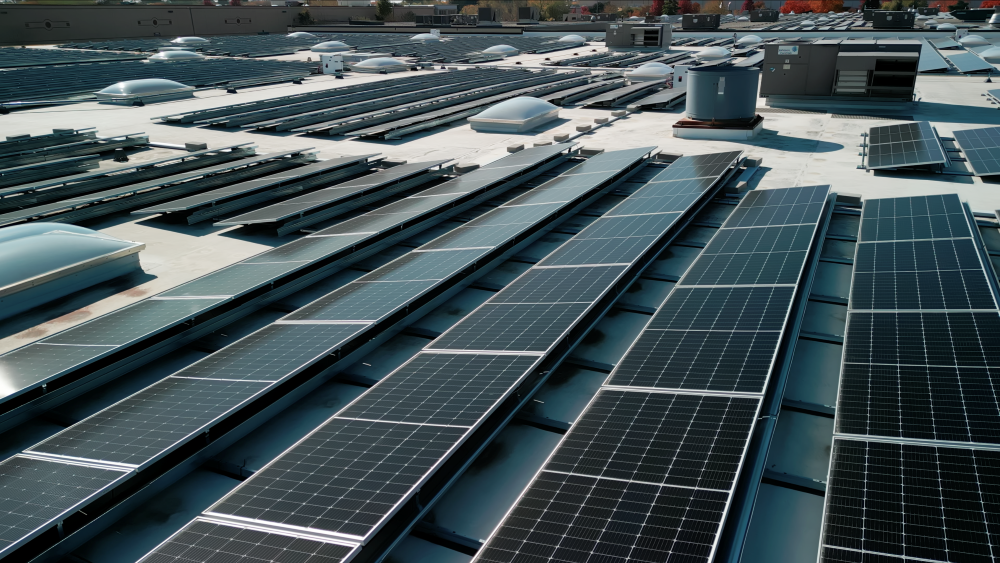Energy Transition Shorts: Grid uncertainty and pricing difficulty

Key takeaways from this episode:
The UK government have decided to reject zonal pricing in favour of reformed national pricing. In this video, Tom Williams and Coos Battjes explore what this means and why this decision was made.
Many of the reasons for incorporating zonal pricing into the UK appear to be counterintuitive to the targets set for Clean Power 2030. Grid reinforcements to reduce bottlenecks, market uncertainty and high costs for zonal shifts are some of the leading reasons for the government’s decision. Experiences in countries with zonal pricing, such as the Nordics, also show that some of the potential long-term benefits may not come into effect.
In the short-term, the pair agreed that zonal pricing would cause a lot of problems for the UK government and the public, while the long-term benefits remain uncertain.
Energy and Infrastructure at Downing
Downing’s dedicated team of renewable energy and infrastructure specialists provide investors with access to renewable energy, grid infrastructure and energy storage opportunities across the UK and Northern Europe. From developing and constructing large-scale renewable energy projects to in-house asset management, we have integrated teams providing end-to-end capabilities.
Zonal pricing is out. Reformed national pricing is in. What does this mean for the UK? Join Tom Williams, Partner and Head of Energy & Infrastructure, and Coos Battjes, Energy Markets Specialist, as they explore this topic.
Key takeaways from this episode:
The UK government have decided to reject zonal pricing in favour of reformed national pricing. In this video, Tom Williams and Coos Battjes explore what this means and why this decision was made.
Many of the reasons for incorporating zonal pricing into the UK appear to be counterintuitive to the targets set for Clean Power 2030. Grid reinforcements to reduce bottlenecks, market uncertainty and high costs for zonal shifts are some of the leading reasons for the government’s decision. Experiences in countries with zonal pricing, such as the Nordics, also show that some of the potential long-term benefits may not come into effect.
In the short-term, the pair agreed that zonal pricing would cause a lot of problems for the UK government and the public, while the long-term benefits remain uncertain.
Energy and Infrastructure at Downing
Downing’s dedicated team of renewable energy and infrastructure specialists provide investors with access to renewable energy, grid infrastructure and energy storage opportunities across the UK and Northern Europe. From developing and constructing large-scale renewable energy projects to in-house asset management, we have integrated teams providing end-to-end capabilities.
Zonal pricing is out. Reformed national pricing is in. What does this mean for the UK? Join Tom Williams, Partner and Head of Energy & Infrastructure, and Coos Battjes, Energy Markets Specialist, as they explore this topic.
Key takeaways from this episode:
The UK government have decided to reject zonal pricing in favour of reformed national pricing. In this video, Tom Williams and Coos Battjes explore what this means and why this decision was made.
Many of the reasons for incorporating zonal pricing into the UK appear to be counterintuitive to the targets set for Clean Power 2030. Grid reinforcements to reduce bottlenecks, market uncertainty and high costs for zonal shifts are some of the leading reasons for the government’s decision. Experiences in countries with zonal pricing, such as the Nordics, also show that some of the potential long-term benefits may not come into effect.
In the short-term, the pair agreed that zonal pricing would cause a lot of problems for the UK government and the public, while the long-term benefits remain uncertain.
Energy and Infrastructure at Downing
Downing’s dedicated team of renewable energy and infrastructure specialists provide investors with access to renewable energy, grid infrastructure and energy storage opportunities across the UK and Northern Europe. From developing and constructing large-scale renewable energy projects to in-house asset management, we have integrated teams providing end-to-end capabilities.
Key takeaways from this episode:
The UK government have decided to reject zonal pricing in favour of reformed national pricing. In this video, Tom Williams and Coos Battjes explore what this means and why this decision was made.
Many of the reasons for incorporating zonal pricing into the UK appear to be counterintuitive to the targets set for Clean Power 2030. Grid reinforcements to reduce bottlenecks, market uncertainty and high costs for zonal shifts are some of the leading reasons for the government’s decision. Experiences in countries with zonal pricing, such as the Nordics, also show that some of the potential long-term benefits may not come into effect.
In the short-term, the pair agreed that zonal pricing would cause a lot of problems for the UK government and the public, while the long-term benefits remain uncertain.
Energy and Infrastructure at Downing
Downing’s dedicated team of renewable energy and infrastructure specialists provide investors with access to renewable energy, grid infrastructure and energy storage opportunities across the UK and Northern Europe. From developing and constructing large-scale renewable energy projects to in-house asset management, we have integrated teams providing end-to-end capabilities.

Please fill out the form to download the full report
Downing LLP does not provide advice or make personal recommendations and investors are strongly urged to seek independent advice before investing. Investments offered on this website carry a higher risk than many other types of investment and prospective investors should be aware that capital is at risk and the value of their investment may go down as well as up. Any investment should only be made on the basis of the relevant product literature and your attention is drawn to the risk, fees and taxation factors contained therein. Tax treatment depends on individual circumstances of each investor and may be subject to change in the future. Past performance is not a reliable indicator of future performance. Downing LLP is authorised and regulated by the Financial Conduct Authority (Firm Reference Number 545025). Registered in England No. OC341575. Registered Office: Downing, 10 Lower Thames Street, London, EC3R 6AF.










